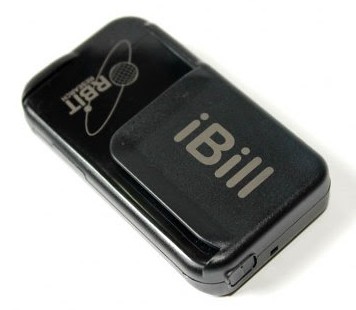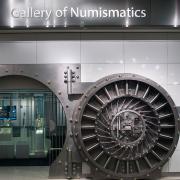
PREV ARTICLE
NEXT ARTICLE
FULL ISSUE
PREV FULL ISSUE
NATIONAL COLLECTION ACQUIRES IBILL READER
Dr. Ellen Feingold is the curator of the National Numismatic Collection at the Smithsonian. Her October 28, 2016 O Say Can You See? blog article highlights a recent collection acquisition, an iBill reader for the blind; the article also features a second interesting item related to the blind.
-Editor
As the curator of the National Numismatic Collection (NNC), I collect objects that reflect innovation in money today in order to preserve them for the historians and museum visitors of tomorrow. But what is innovative? To many, innovation means the new digital technologies emerging from private enterprise, such as cryptocurrencies, mobile money, and Apple Pay, which continue to make cash seem more and more obsolete. Over the last year, however, I have collected a variety of coins and banknotes—and objects that enable their use—that reflect more subtle technological and social innovations. Three of these objects are now on display in the New Acquisitions case in The Value of Money.
The iBill Currency Reader The iBill is a small, handheld device that reads all U.S. banknotes. The reader communicates the value of the banknote through a voice, pattern of tones, or pattern of vibrations. The vibrations setting makes the iBill useful to people who are both deaf and blind. The iBill joins other objects in the NNC that reflect the need to make money accessible to all, including a Braille check signed by Helen Keller that was donated to the Smithsonian in 1978.
Braille check signed by Helen Keller 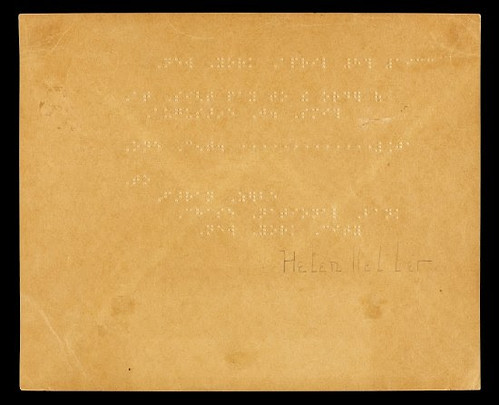
Check for one cent signed by Helen Keller, United States, 1933. Donated by The Chase Manhattan Bank.
I'm pleased to see alternative currencies being added to the collection as well. Two are pictured below. Also acquired was a National Baseball Hall of Fame coin.
-Editor
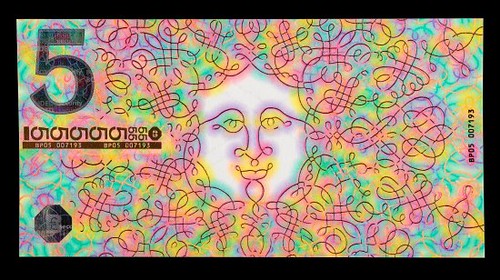
5 Brixton Pound note, United Kingdom, 2014.
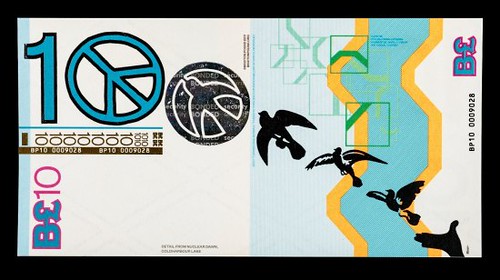
10 Brixton Pound note, United Kingdom, about 2011.
For more information on The value of Money exhibit, see:

Wayne Homren, Editor The Numismatic Bibliomania Society is a non-profit organization promoting numismatic literature. See our web site at coinbooks.org. To submit items for publication in The E-Sylum, write to the Editor at this address: whomren@gmail.com To subscribe go to: https://my.binhost.com/lists/listinfo/esylum All Rights Reserved. NBS Home Page Contact the NBS webmaster 
|
